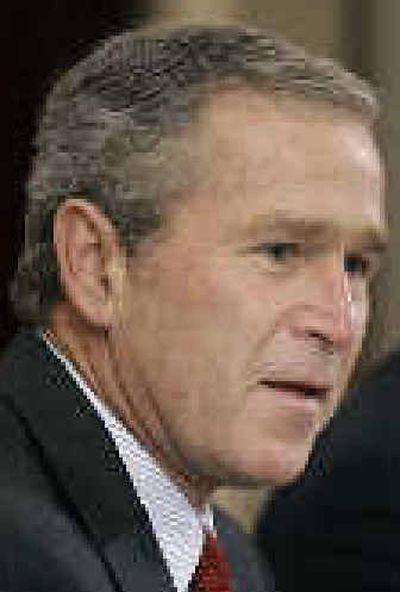Bush to rally nation in State of Union speech

WASHINGTON – In wartime, presidents have filled their State of the Union addresses with words to rally the nation.
It surely will be no different for President Bush on Wednesday night. Although the commander in chief never mentioned the word Iraq in his inaugural address Jan. 20, he is certain to focus on the conflict in his State of the Union speech just three days after Iraqis held elections. More than 1,400 Americans have died since the war began nearly two years ago, and Bush is poised to ask Congress for $80 billion more to help pay for a conflict that is costing $1 billion a week. Amid unease about the war, Bush faces the challenge of assuaging Americans’ concerns about the rising toll in lives and dollars.
State of the Union speeches offer an important stage for presidents. They usually sketch out the evils of the enemy and trumpet America’s willingness to sacrifice – all part of a concerted effort to keep support strong.
On Jan. 6, 1942, less than a month after the Japanese attack on Pearl Harbor, President Franklin D. Roosevelt spoke of the “spirit of the American people,” their deep determination and their solemn task.
“The militarists of Berlin and Tokyo started this war. But the massed, angered forces of common humanity will finish it,” he said.
Then, acknowledging the question of nearly every American, Roosevelt said, “Many people ask, ‘When will this war end?’ There is only one answer to that. It will end just as soon as we make it end, by our combined efforts, our combined strength, our combined determination to fight through and work through until the end – the end of militarism in Germany and Italy and Japan. Most certainly we shall not settle for less.”
Ken Hechler, a former political science professor who edited Roosevelt’s public papers and addresses, said Bush’s challenge is similar to Roosevelt’s – to shore up the nation.
“A good deal of that speech was meant to stiffen the morale against the negative reaction,” said Hechler, who also served as a congressman from West Virginia (1959-77).
In the middle of a massive air war in the Persian Gulf to push Iraqi forces out of Kuwait, President George H.W. Bush told the nation on Jan. 29, 1991, “All of us yearn for a world where we will never have to fight again.”
Bush’s father contrasted the offenses of Saddam Hussein – “his ruthless, systematic rape of a peaceful neighbor” – with the multilateral effort to stop him.
“The world can … seize this opportunity to fulfill the longheld promise of a new world order, where brutality will go unrewarded and aggression will meet collective resistance,” he said.
In the address Wednesday, Ritter said, Bush might remind Americans of the beheadings and insurgent attacks in Iraq, and focus on the push for democracy.
Bush will want to make sure that his domestic agenda – anchored by his far-reaching plans for partial privatization of Social Security and overhaul of the tax code – does not get lost in the worries about dangers abroad.